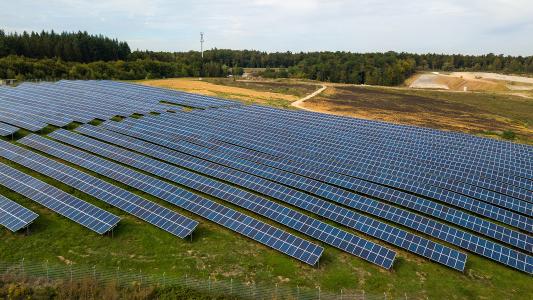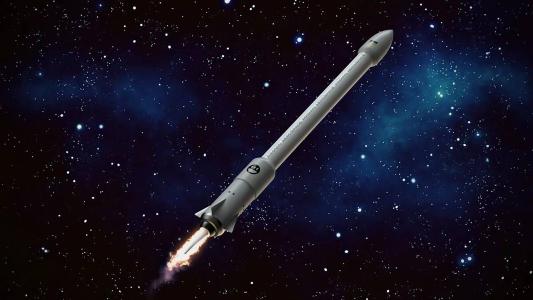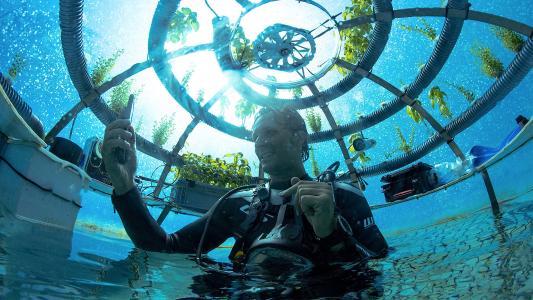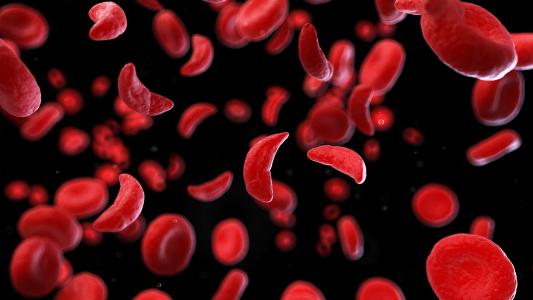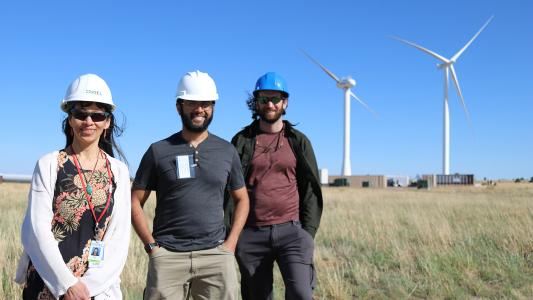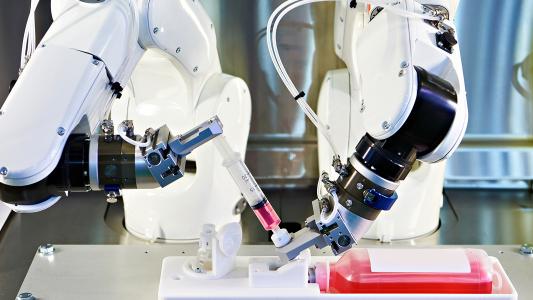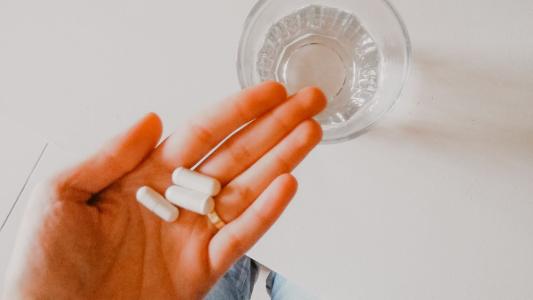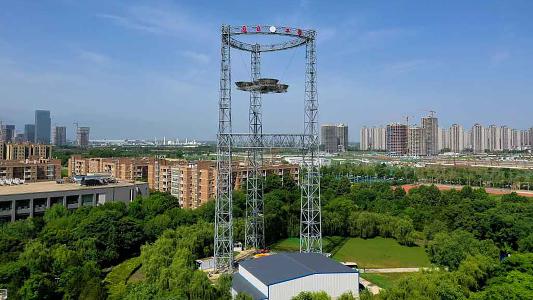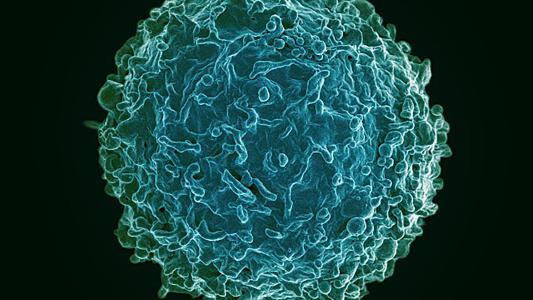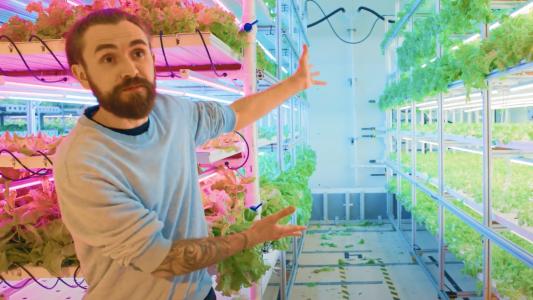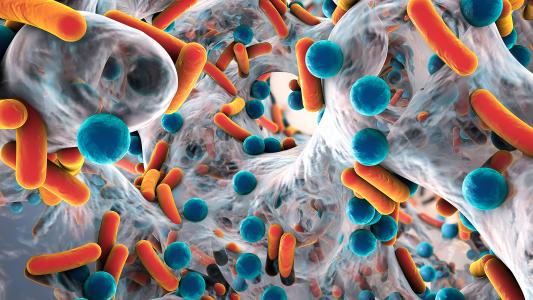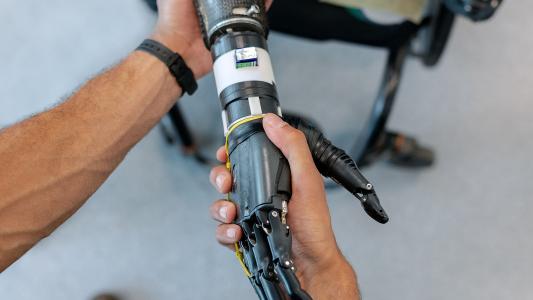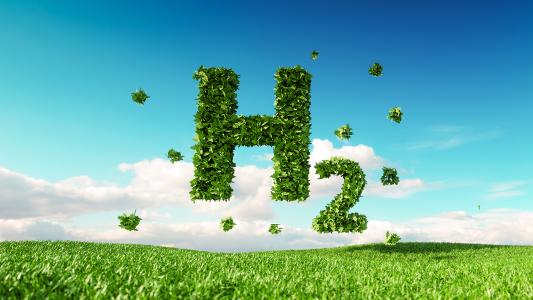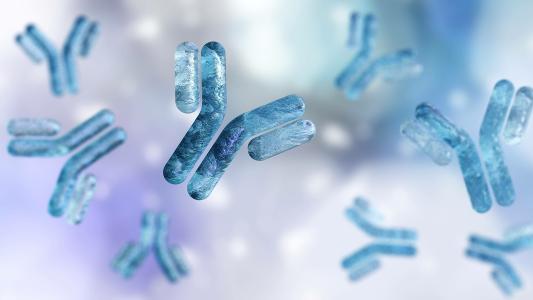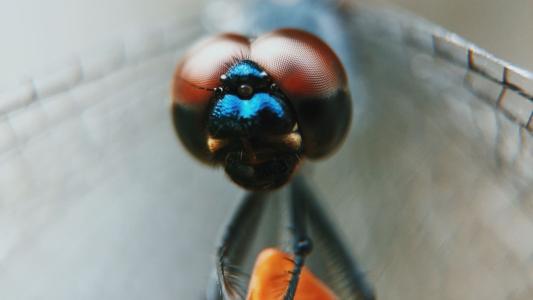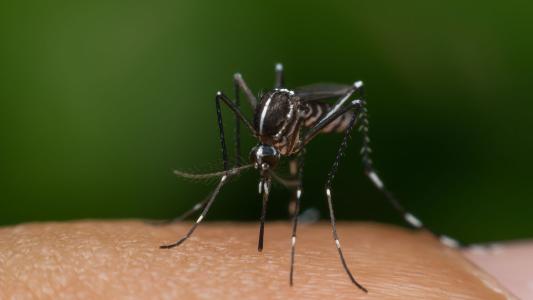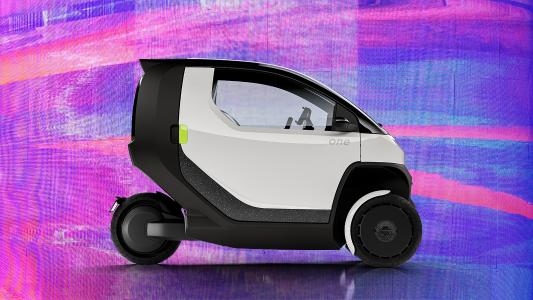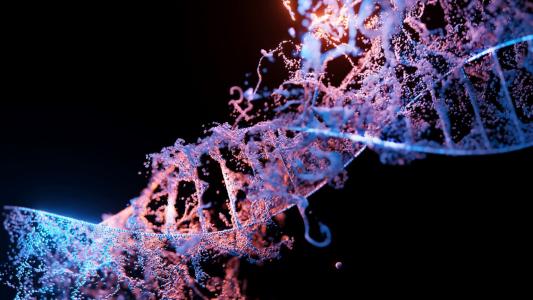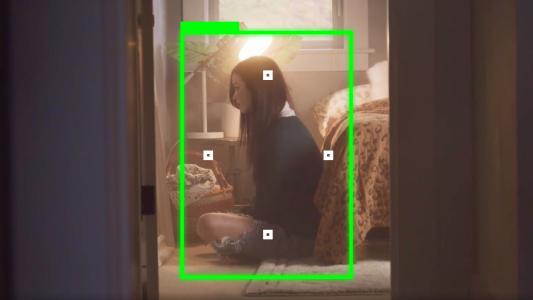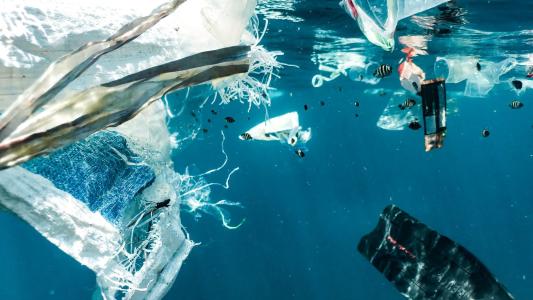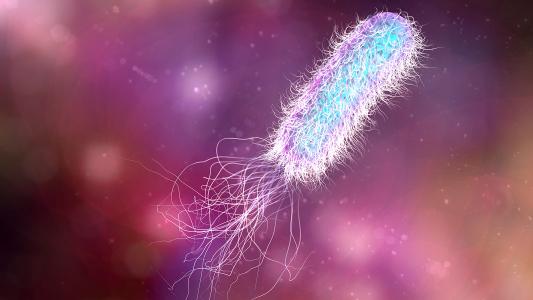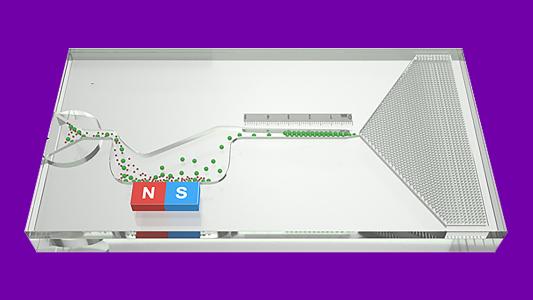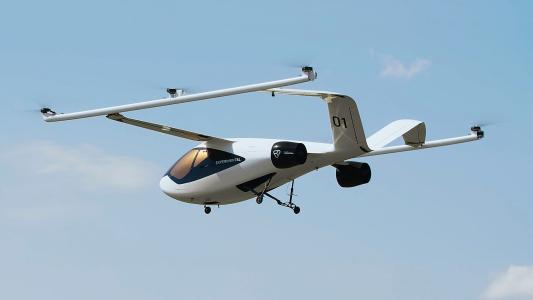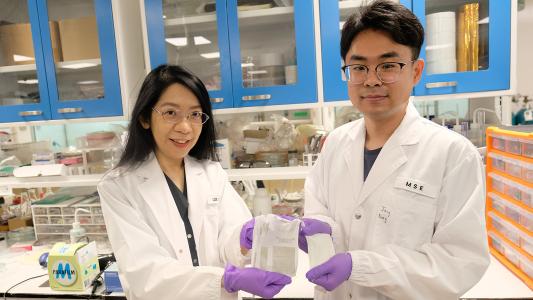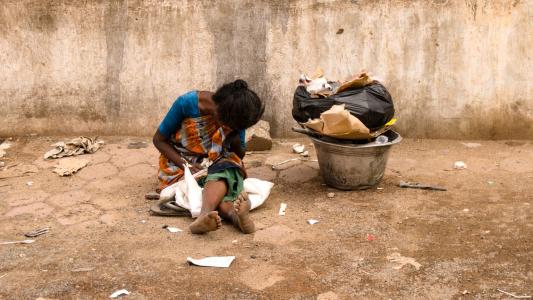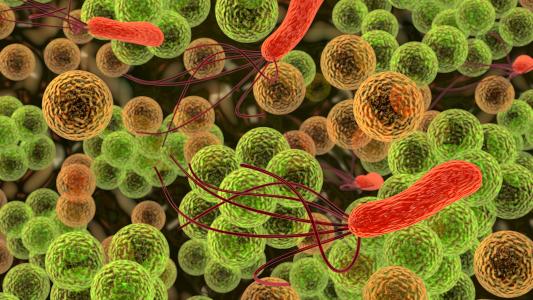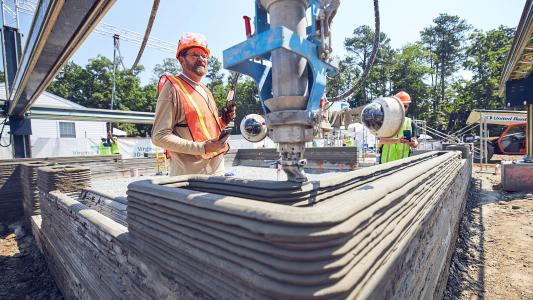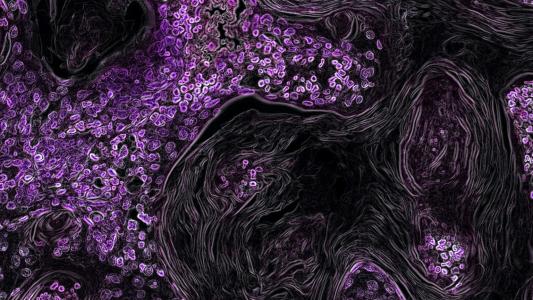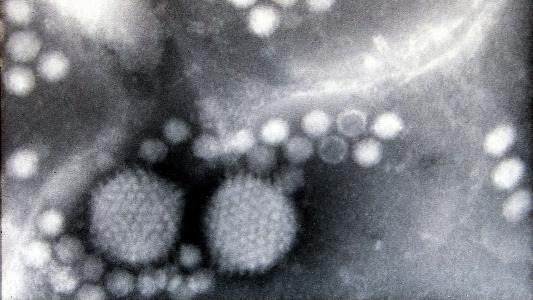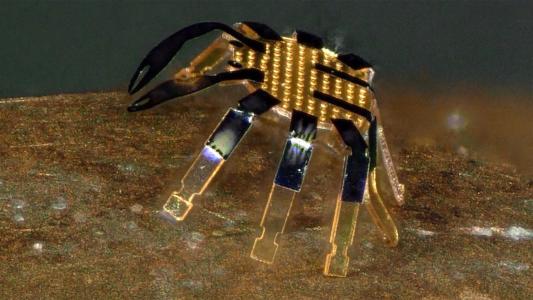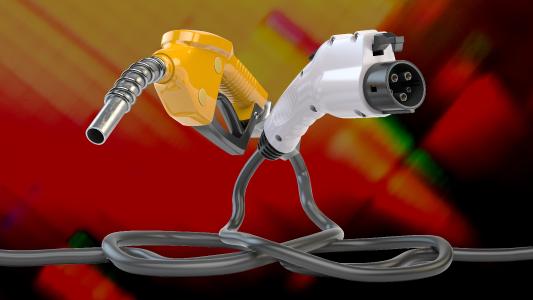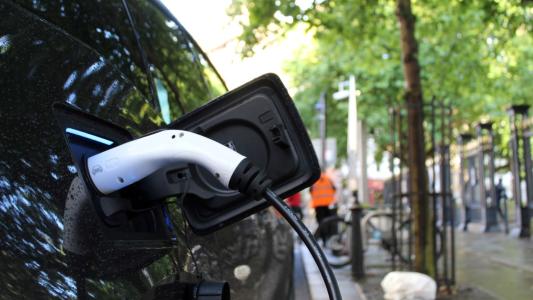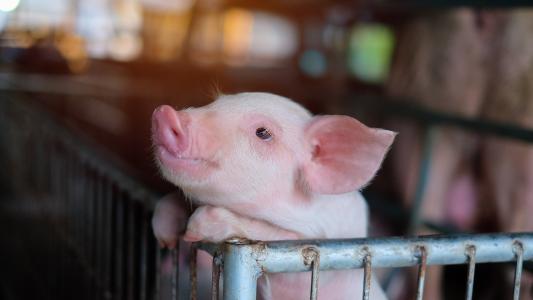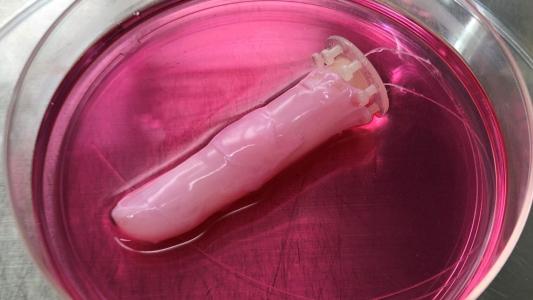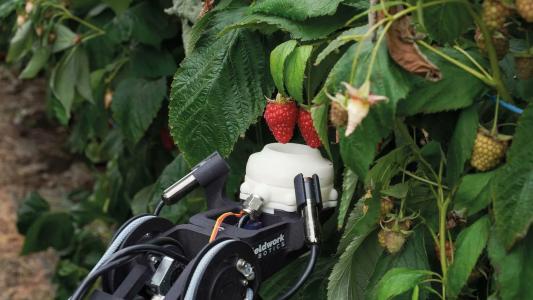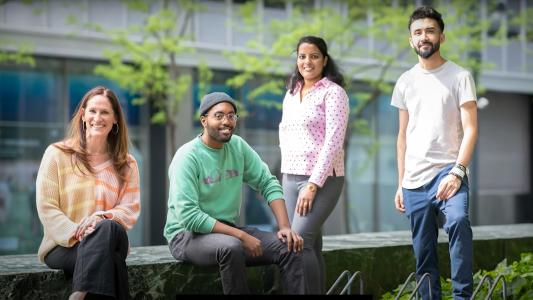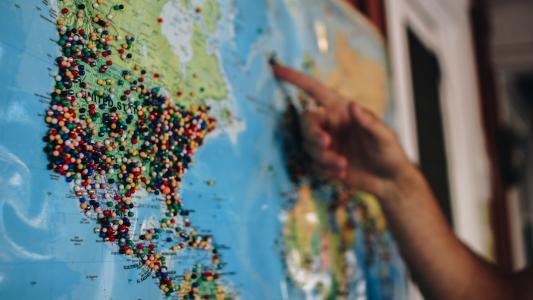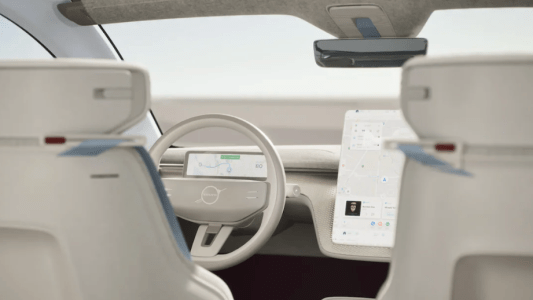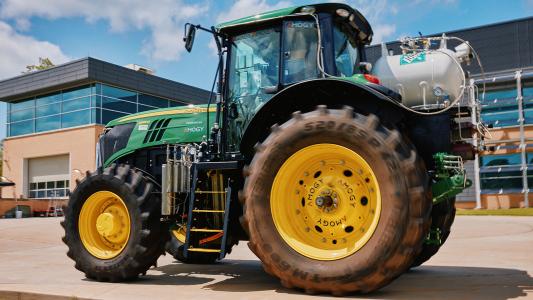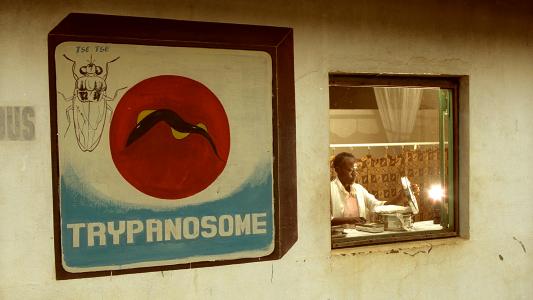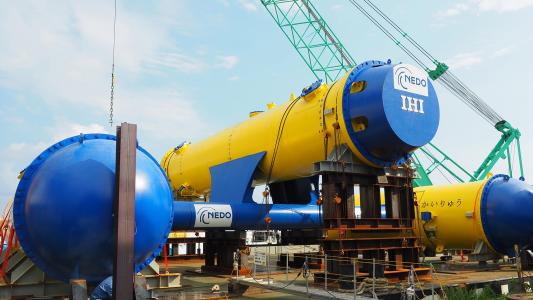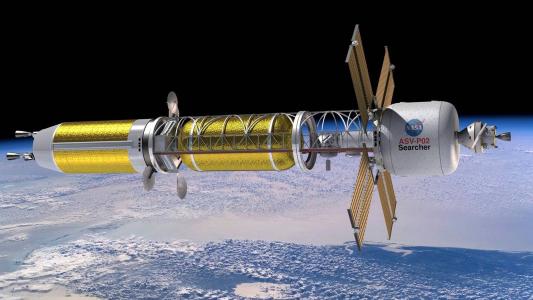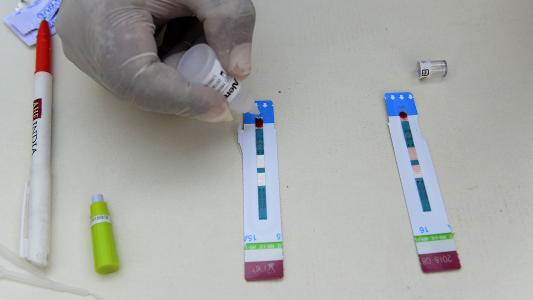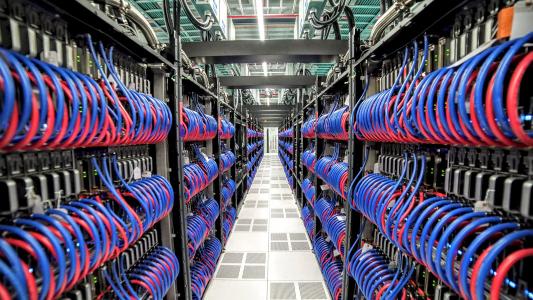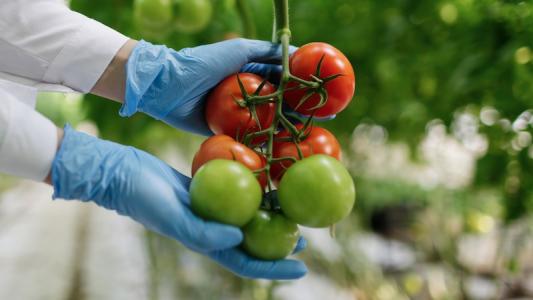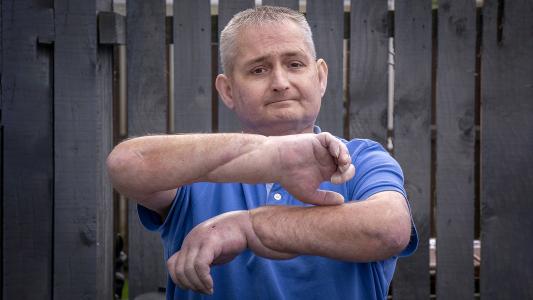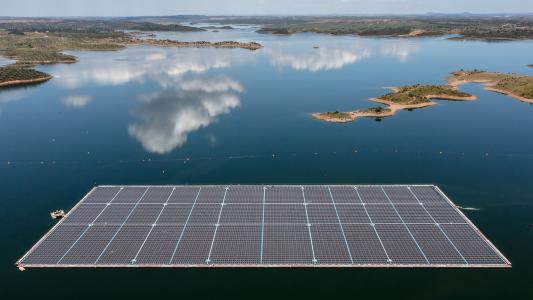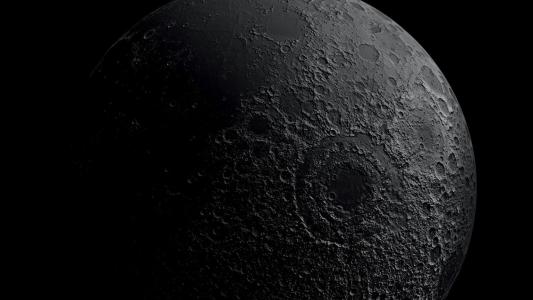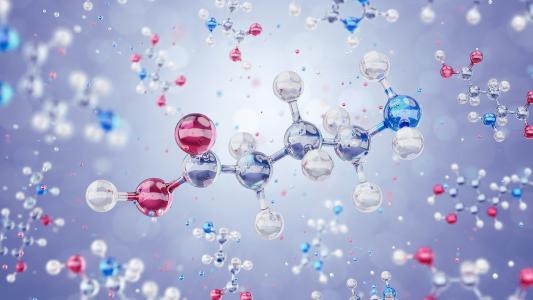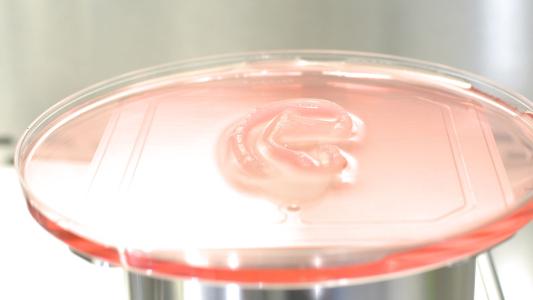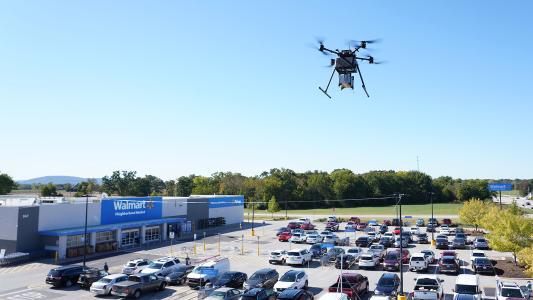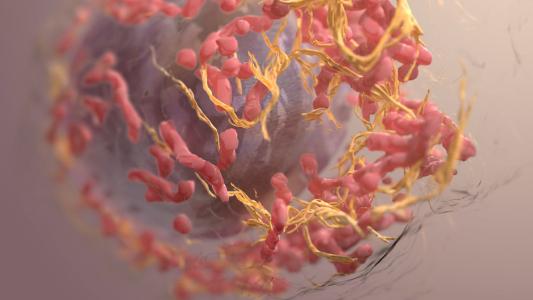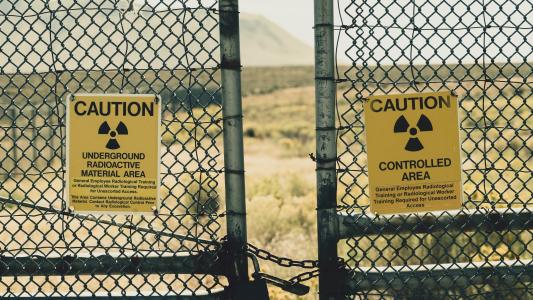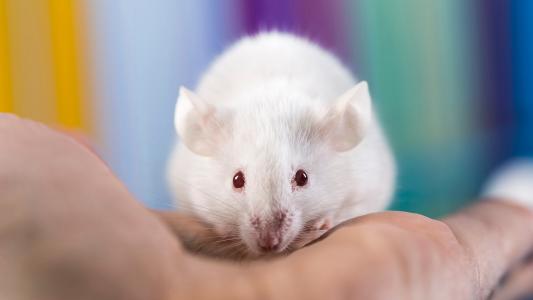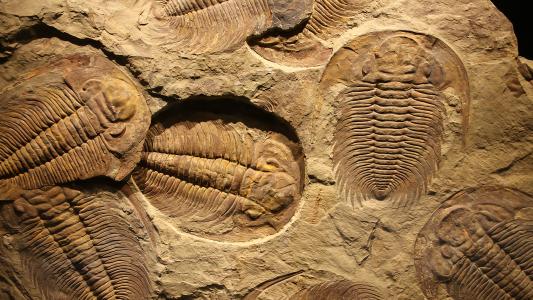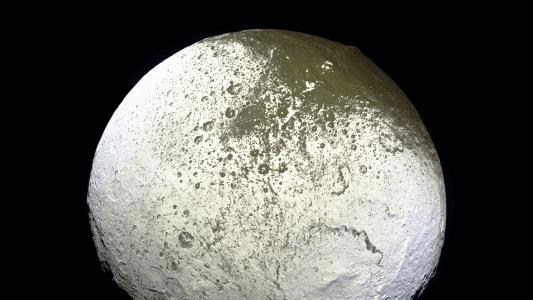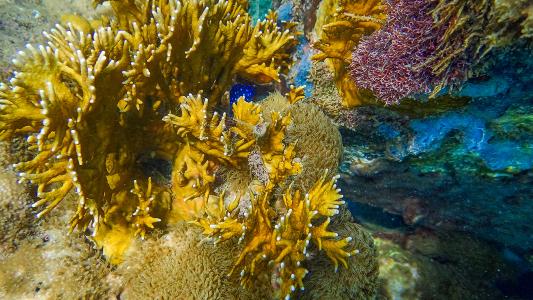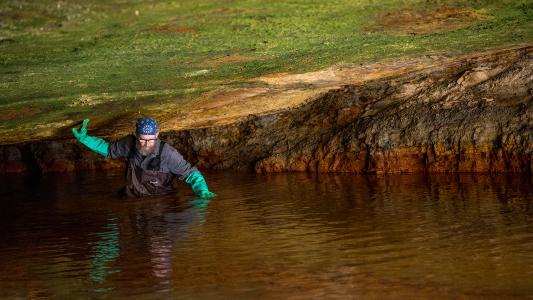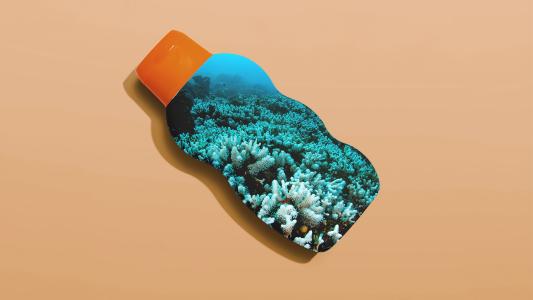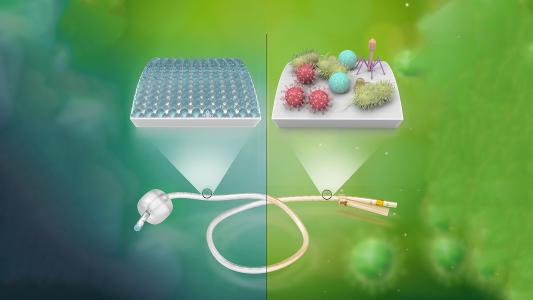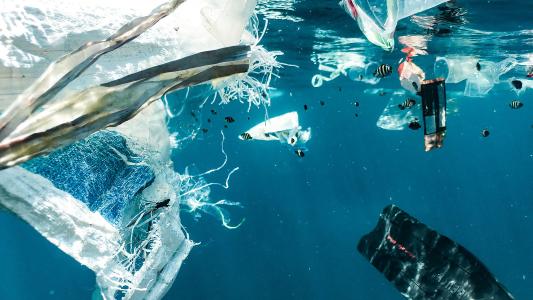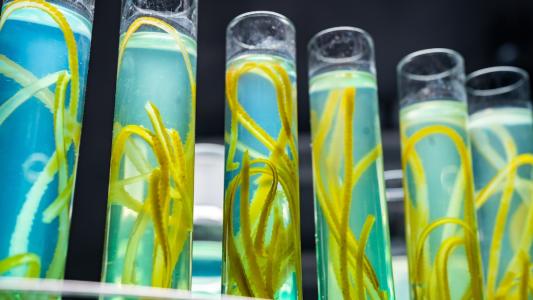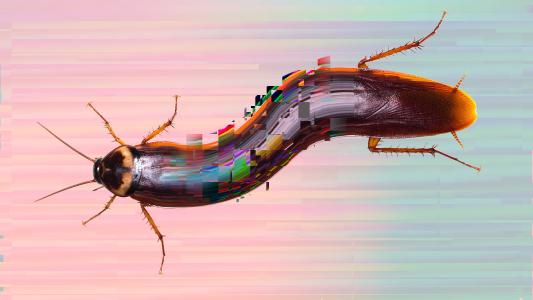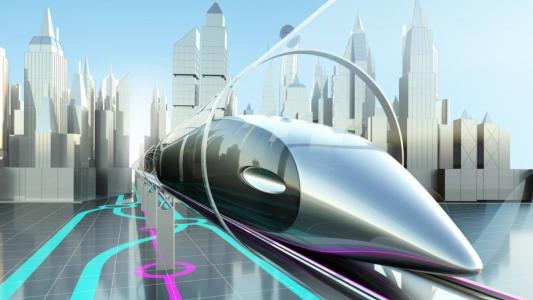Former landfills are becoming “brightfields”
US cities are covering the capped sites of former landfills with solar panels, turning the “brownfields” into “brightfields.”
Ukrainian startup expects to fly “self-devouring” rocket in 2022
Ukrainian startup Promin Aerospace is developing a “self-devouring” rocket built from a material that its engine can burn as fuel.
How to be a techno-optimist
Technology will not save the world, and it is inherently neither good nor bad. But, when tech is coupled to human virtue, good will prevail.
Dive into the world’s first underwater garden
An underwater garden off the coast of Italy is introducing the world to a new type of sustainable agriculture.
CRISPR cure for sickle cell nearly 100% effective after three years
A CRISPR therapy for sickle cell disease and beta thalassemia looks close to 100% effective three years after infusion.
These bendy wind turbines won’t crack in hurricanes
To significantly scale up offshore wind turbines, SUMR researchers are testing a design inspired by the flexibility of palm trees.
Google has not created sentient AI — yet
Google can make AI seem sentient, but the AI has no understanding of what it is saying. But humans are easily fooled by conversational AI.
Cloud labs are the “ghost kitchens” of science
Cloud labs which run experiments with robots remotely may make science more efficient, replicable, and accessible.
This molecule may be the “secret sauce” of exercise — but it won’t work as a pill
Administering Lac-Phe to obese mice significantly lowered their appetite, reduced body fat, and improved glucose tolerance.
Gene-edited wheat less likely to produce “probable carcinogen” acrylamide
A new gene-edited wheat contains 90% less of a compound that can turn into acrylamide — a likely carcinogen — when the crop is cooked.
After millennia of agricultural expansion, the world has passed “peak agricultural land”
This marks a historic moment in humanity’s relationship to the planet.
China successfully tests space-based solar power components
Researchers at China’s Xidian University have successfully tested a proof-of-concept for collecting solar power via satellites.
CRISPR could create a one-shot treatment for HIV
Researchers have used gene editing to engineer HIV-fighting immune cells inside the bodies of mice.
Engineers develop nanoparticles that cross the blood-brain barrier
Tested using a new brain tissue model, the particles may be able to deliver chemotherapy drugs to cancer patients.
Why growing food indoors is the future of farming 
In partnership with Million Stories
How a poker prodigy “accidentally” created a booming lettuce company.
Satellites zoom in on cities’ hottest neighborhoods
In “micro-urban heat islands,” communities can experience heat wave conditions well before officials declare a heat emergency.
Here is how to send a distress signal to space from anywhere on Earth
International search-and-rescue program Cospas-Sarsat uses satellites and emergency beacons to locate and help people in distress.
Hyundai’s autonomous ship is the first to make a transoceanic journey
Autonomous ships like the Prism Courage could make the seas safer, while also making shipping cleaner and more efficient.
This starchy wondercrop could help alleviate food insecurity
Enset, a perennial banana-like fruit cultivated in southwestern Ethiopia, is an underexploited starch crop with significant potential.
CRISPR can create a “captain’s log” for bacteria traveling through the microbiome
A team at ETH Zurich has modified E. coli to work like biological recorders of the processes of the gut.
Apple Watch now approved to track Parkinson’s symptoms
Apple Watch motion data will now be incorporated into Rune Labs’ StrivePD app, which tracks Parkinson’s symptoms.
We may want to rethink how we deliver COVID-19 vaccines
An inhaled vaccine outperformed a nasal spray in an animal study, suggesting that the delivery method could deserve more attention.
How the brain responds to surprising events
Unexpected outcomes trigger release of noradrenaline, which helps the brain focus its attention and learn from the event.
Is our world ready for mind-controllable robotic body parts?
Advanced neuroprosthetics are here, and they could hook our brains into the Internet of Things.
A groundbreaking solution could unleash our hydrogen future
German researchers have created genetically engineered bacteria that can rapidly store and release hydrogen fuel.
Moms’ “super-antibodies” point the way to new antibody medicines
Pregnancy bestows on babies enhanced antibodies that can protect against a broader range of disease. Now, we know how.
Magic mushrooms evolved to scramble insect brains, send them on wild, scary trips
Researchers discovered that the way fungi independently gained the ability to produce psilocybin is because of horizontal gene transfer.
Future tech could 3D print objects inside your body
Direct sound printing could one day allow doctors to build medical implants inside patients’ bodies instead of surgically placing them.
A vaccine against mosquito saliva may be the key to stopping their diseases
University of Leeds researchers have identified a compound in mosquito saliva as a potential target to protect against multiple viruses.
Why Africa’s newest super-bridge is in the continent’s weirdest border zone
The Kazungula Bridge has turned a cartographic near-miss into a geopolitical marvel, with a chance to renew Africa's economy.
New test tells you how many T cells for COVID-19 you have
A new blood test that measures a key indicator of COVID-19 immunity could help you assess your risk of a coronavirus infection.
This compact electric vehicle wants to combine a scooter and a car
Nimbus is now taking pre-orders for its compact electric vehicle, which splits the difference between scooter and car.
New CRISPR-based map ties every human gene to its function
Researchers used a single-cell sequencing tool Perturb-seq on every expressed gene in the human genome, linking each to its job in the cell.
How facial recognition is identifying human trafficking victims
In partnership with Clearview AI
The technology is enabling law enforcement to shine a light on the darkest corners of the open internet.
The age reversal tech that billionaires are banking on
How long can a human being not only live but thrive? A race to find out involves some of the biggest names (and bank accounts) in tech.
Where does the plastic in our oceans come from?
Which countries and rivers emit the most plastic to the ocean? What does this mean for solutions to tackle plastic pollution?
A smart bomber for bacteria could help save antibiotics
Brown University researchers have developed a “smart” drug delivery system that only releases its payload when bacteria are present.
Handheld antibody tester could reveal if you’re immune to COVID
Hong Kong researchers have developed a handheld COVID antibody testing device more capable than current home tests.
Theory of mind: What chess and drug dealers can teach you about manipulation
Every social interaction is a game of chess, trying to get inside someone’s head to navigate what they are thinking or what they will do.
Pilotless German air taxi flies for first time
Volocopter’s four-seat air taxi — the VoloConnect — has completed its maiden flight and is on track for a 2026 commercial launch.
Washable smart fabric turns movement into electricity
NTU Singapore researchers have developed a washable, stretchy smart fabric that turns movement into electricity.
We need to know about progress if we’re concerned about the world’s large problems
Our World in Data explains their mission to publish the “research and data to make progress against the world’s largest problems.”
Tiny nanoscale drills can bore holes right through bacteria
Rice University researchers have developed tiny, bacteria-boring drills in an effort to stop superbugs.
The key to fighting fungal infections may have been inside us all along
MIT researchers have discovered that complex molecules in mucus can keep fungal infections in check.
Virginia launches world’s biggest 3D-printed housing project
Construction company Alquist 3D plans to build 200 3D-printed houses over the next 5 years through Project Virginia.
“Stealth bomb” for cancer unlocks powerful immune attack
A "masked" cancer drug stealthily trains immune system to kill tumors while sparing healthy tissues, reducing treatment side effects.
Gene therapy fixes rare heart disorder with clever workaround
Cleveland Clinic researchers have developed a gene therapy that cured arrhythmias in mice.
Tiny robotic crab, controlled by lasers, can run, twist, and jump
A new robotic crab has a sophisticated structure for its size, but it can still be manufactured using a relatively simple process.
The biggest myths about electric vehicles
Electric vehicle sales are skyrocketing, but misinformation about the tech is still rampant. These are seven of the biggest myths about EVs.
Electric car supplies are running out
People who aspire to own a brand new electric vehicle will struggle to move forward. Will this also slow down the journey to net-zero?
Chinese robot clones pigs with no human help
A robot that automates a common technique for animal cloning has been used to produce a litter of pigs in China.
Stimulating deep sleep may improve brain health, memory, and mood
Researchers are trying to harness deep sleep to bolster the glymphatic system, which helps flush brain tissue.
Self-healing robot skin created out of human cells
University of Tokyo researchers have created a living skin, made from human cells and collagen, for a robotic finger.
The US Civil War drastically reshaped how Americans deal with death – will the pandemic?
How do American's attitudes towards death change when they are confronted with such enormous losses?
New harvesting robots are gentle enough to pick this fruit
A pair of harvesting robots are picking raspberries in Portugal, demonstrating the ability of tech to help combat seasonal labor shortages.
Small trial of cancer immunotherapy sends every patient into remission
Every participant in a small trial testing a rectal cancer immunotherapy has had their disease go into complete remission.
Geopsychology: Your personality depends on where you live
Scientists in the relatively new field of “geopsychology” are seeing links between personality and location.
Volvo to bring photorealistic graphics to electric cars through Unreal Engine
The world's most popular graphics engine isn't just for video games.
MIT grads demonstrate first ammonia-powered tractor
Amogy, a startup founded by four MIT grads, has transformed a John Deere into the world’s first zero-emission, ammonia-powered tractor.
Digital technology can cut global emissions by 15%. Here’s how.
The grand challenge for humanity is to ensure that groundbreaking technologies have a clear purpose for our planet.
Three more nations eliminate sleeping sickness as a public health threat
Sleeping sickness is a horrifying disease mainly impacting the rural poor. But three more African nations have succeeded in curtailing its threat.
Nuclear isomers were discovered 100 years ago
Protons and neutrons in an atom’s nucleus can be arranged in different configurations, creating nuclear isomers.
Massive turbine turns deep ocean currents into electricity
Deep ocean currents could be an economically viable source of clean energy, based on a recently wrapped demo in Japan.
Unreal Engine may power the metaverse
Epic’s popular Unreal Engine is on its fifth iteration, and the tools it contains may be especially helpful for metaverse developers.
How a volcanic eruption was forecast five months in advance
Researchers correctly forecast a volcanic eruption five months in advance by running a modeling program on a supercomputer.
US plans to put nuclear-powered spacecraft in orbit by 2026
Nuclear thermal propulsion systems could power missions to Mars, help defense satellites evade attacks, and more.
Why at-home STI tests may (finally) be about to take off
Inspired by the home testing of the pandemic and rising STI cases, some experts think that more accessible testing may be an important public health tool.
Longtermism’s perspective on humanity’s past, present, and future
If we manage to avoid a large catastrophe, we can see ourselves as living at the early beginnings of human history.
US’s Frontier is the world’s first exascale supercomputer
The US Department of Energy’s Frontier system is the fastest supercomputer in the world and the first exascale computer ever.
This already-approved drug could help repair the brain after stroke
Ohio State researchers have found that an already approved anticonvulsant drug helps increase stroke recovery in mice.
Recycled tires can act as sunscreen for roads
Australian researchers blasted bitumen with a UV machine to discover how used tires can act as road “sunscreen.”
New gene-edited tomatoes boost vitamin D levels
As many as a billion people may be suffering from vitamin D deficiency.
Study reveals the dynamics of human milk production
MIT researchers performed a large-scale study of the cells in human breast milk, allowing them to track how these cells change over time.
UK man receives double hand transplant to treat rare disease
UK surgeons have performed the world’s first double hand transplant to treat scleroderma, a rare autoimmune disease.
Portugal set to start up Europe’s largest floating solar park
Floating panels don’t require costly real estate and those on reservoirs used for hydropower are particularly cost effective.
Humans have big plans for mining in space
What's holding us back from mining in space when we have such big plans already? The sheer cost, for one thing.
A new treatment may cure neuropathic pain
A gene therapy tested in animals may be a safe, permanent, and non-addictive treatment for neuropathic pain in humans.
New surgery implants living, 3D-printed body parts
A 3D-printed outer ear made from the patient’s own cells has been implanted.
Walmart drone delivery now covers 4 million households
The Walmart drone delivery program is expanding from one state to six, bringing the service to as many as 4 million households.
We have a new way to hunt for potentially hazardous asteroids
To help protect Earth from potentially hazardous asteroids, astronomers developed an algorithm to look for them in existing datasets.
This AI can finally tell humans why we’re losing
By combining traditional and deep learning approaches, a neurosymbolic AI has beaten bridge champions in a win for “white box” AI.
Genetic mutations can be benign or cancerous – here’s a new way to identify them
Identifying the difference between normal genetic variation and disease-causing mutations is vital for determining a person's treatment.
Lasers could cut lifespan of nuclear waste from “a million years to 30 minutes,” says Nobel laureate
If no solution is found, we're already stuck with some 22,000 cubic meters of long-lasting hazardous waste.
Real cheese without the cow
Biotech startup Formo uses genetically modified microorganisms to produce a completely lab-grown milk that can be made into cheese.
HIV drug could improve memory
The common HIV drug maraviroc improved memory linking in aging mice and might be able to help people experiencing memory loss, too.
A world map of private islands (some are a steal!)
Private islands exert a special attraction on the imagination. While they're often the realm of the rich, some are downright cheap.
Ancient creatures inspire record-breaking new technology
Inspired by the ancient compound eyes of the trilobite, researchers have created a record-breaking camera with a depth of field of just over a mile.
After 350 years, astronomers still can’t explain the solar system’s strangest moon
Saturn's Iapetus, discovered way back in 1671, has three bizarre features that science still can't fully explain.
World’s fastest passenger jet hits near-supersonic speeds
Aircraft manufacturer Bombardier has unveiled the Global 8000, the fastest private jet in the world with a max operating speed of 721 mph.
The source of a strange anti-cancer compound is found in Florida
Researchers have discovered that common soft corals are the source of a sought-after anti-cancer compound.
Turning Appalachia’s contaminated creek water into art
Acid mine drainage turns thousands of creeks orange in Appalachia. True Pigments is pulling that pollution to create paint pigments.
We finally know why sunscreen kills coral reefs
Stanford researchers have discovered the mechanism by which a sunscreen compound can harm coral and other marine life.
New tech could help prevent 2/3 of hospital-acquired infections
A new treatment could prevent hospital-acquired infections by making it hard for biofilms to form on implanted medical devices.
Why haven’t plastic-eating bacteria fixed the plastic problem yet?
Texas scientists have created an enzyme that could keep billions of pounds of plastic out of landfills.
What foods will 9.3 billion people be eating in 2050?
Algae, fried insects, and exotic lab-grown meat could all be on the menu.
A new device can make drinking water from seawater at the push of a button
A new portable unit from MIT researchers could make it much easier to remove salt from water to create drinking water.
A massive kite is now generating carbon-free electricity
Airborne wind energy systems put turbines in the sky, where the wind tends to blow faster and more consistently.
First CRISPR’d cockroaches open door to other gene-edited insects
It’s now easier for scientists to create gene-edited insects thanks to a new technique called “direct parental CRISPR.”
Elon Musk’s Hyperloop is possible. How badly do we want it?
The Hyperloop is physically possible, but engineering challenges will make its construction difficult. Also, accidents would be catastrophic.
